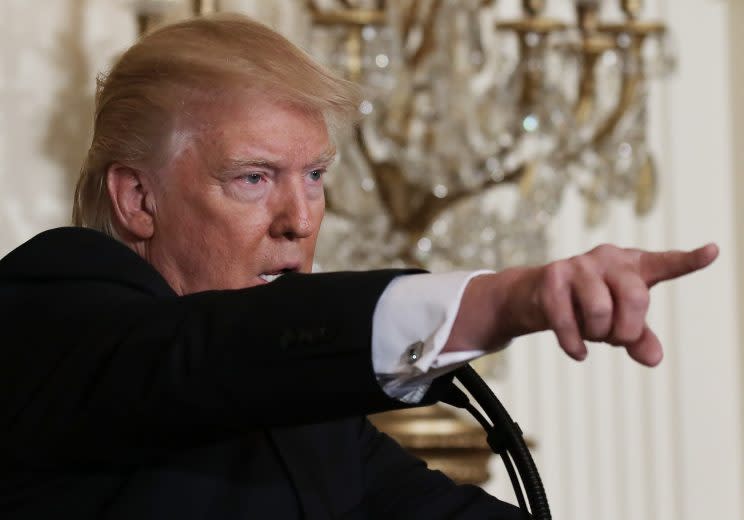Calling Donald Trump mentally ill insults those with illness: psychiatrist

As turmoil grows in the White House, a leading psychiatrist said that calling embattled U.S. President Donald Trump mentally ill is an insult to those who actually live with mental illness.
Allen Frances, professor emeritus of psychiatry and behavioural sciences at Duke University Medical College, counters a letter written by several industry professionals to the New York Times. The letter, published Feb. 13, reads that Trump “grave emotional instability” that “makes him incapable of serving safely as president.”
Although Frances hasn’t examined Trump himself, he said the president does not meet the criteria for narcissistic personality disorder–which Frances should know, because he wrote it. Frances chaired the task force that wrote the Diagnostic and Statistical Manual of Mental Disorders IV (D.S.M.-IV), published in 1994 and revised in 2000.
“He may be a world-class narcissist, but this doesn’t make him mentally ill, because he does not suffer from the distress and impairment required to diagnose mental disorder,” Frances wrote to the Times in response to the earlier letter, signed by 35 mental health professionals.
“Mr. Trump causes severe distress rather than experiencing it and has been richly rewarded, rather than punished, for his grandiosity, self-absorption and lack of empathy,” Frances continued in his written response, published Feb. 14. “It is a stigmatizing insult to the mentally ill (who are mostly well behaved and well meaning) to be lumped with Mr. Trump (who is neither).”
Suggestions that Trump is mentally ill or otherwise cognitively impaired are not new. In December three U.S. professors of psychiatry wrote a letter to then-U.S. president Barack Obama asking that he ensure Trump receive a full health evaluation.
“We strongly recommend that, in preparation for assuming these responsibilities, he receive a full medical and neuropsychiatric evaluation by an impartial team of investigators,” the December letter read.
One of the signatories to a petition calling for Trump’s removal due to mental illness explained in a Vox piece that she understands why it is controversial–and outlined the political origins of the position she defied when she signed her name.
“My position, along with the others signing onto the petition, is controversial,” Sherry Armenstein wrote. “Since public calls to diagnose Republican presidential candidate Barry Goldwater in the 1960s, the mental health community has stuck to a code: Do not diagnose a person in the public eye, only in a diagnostic setting, no matter how tempting.”



